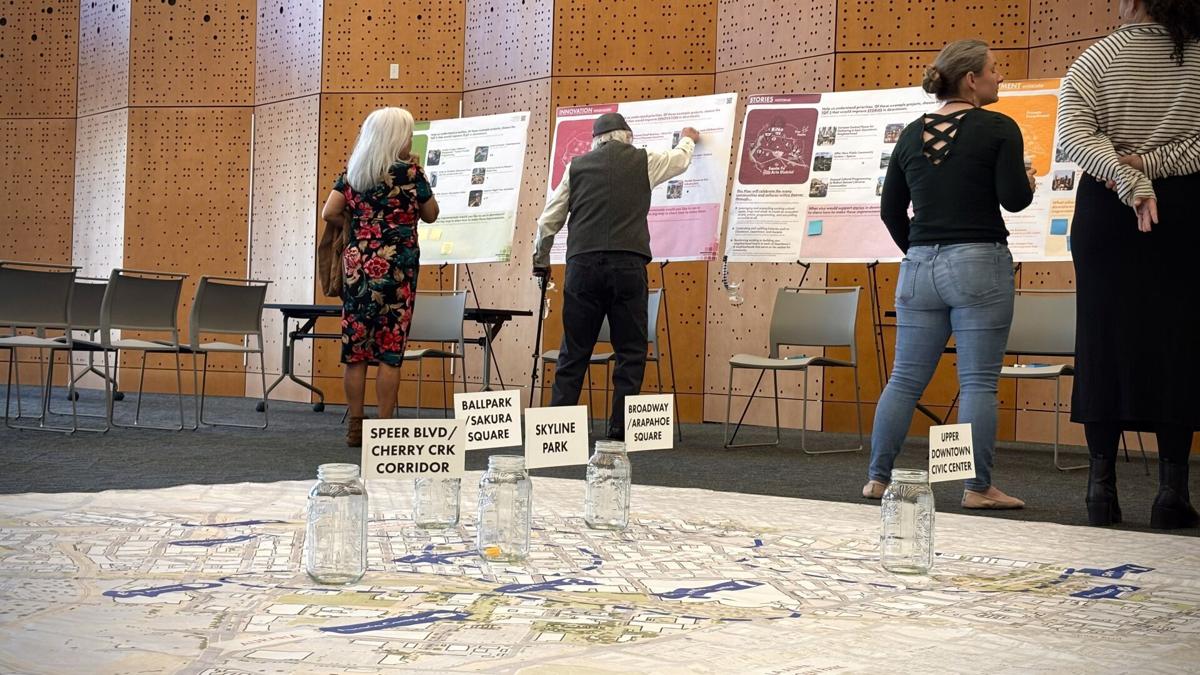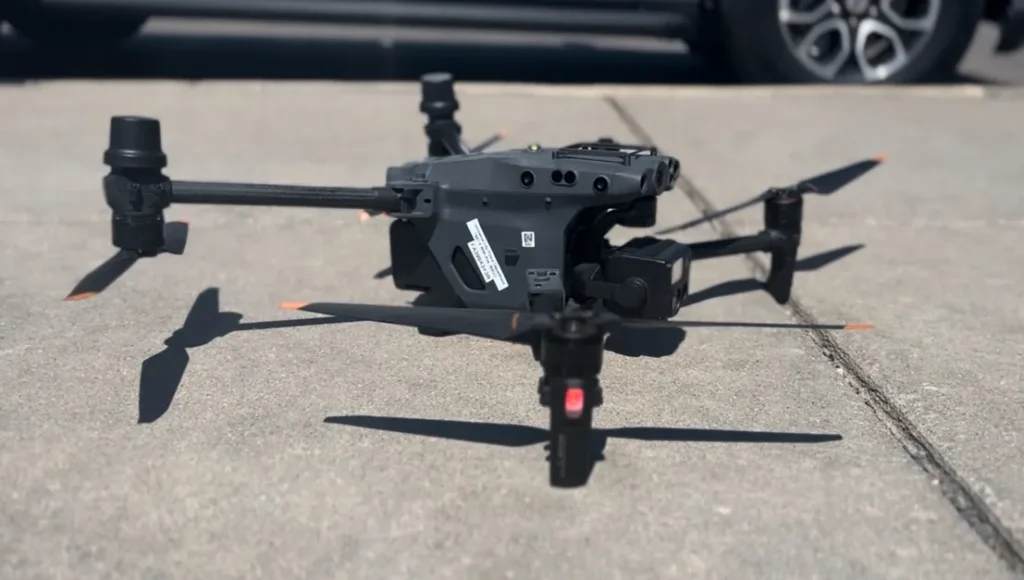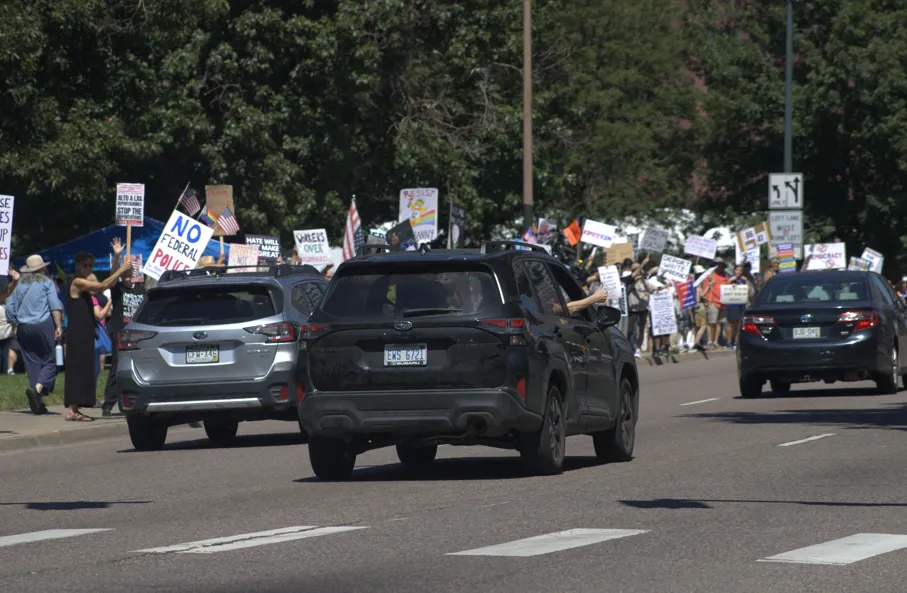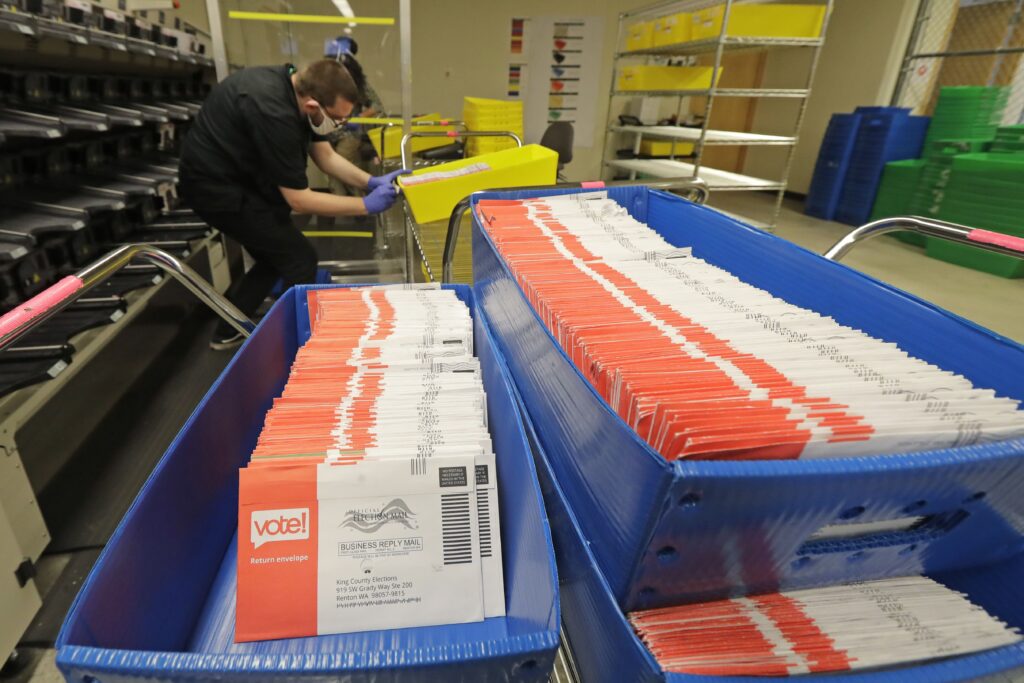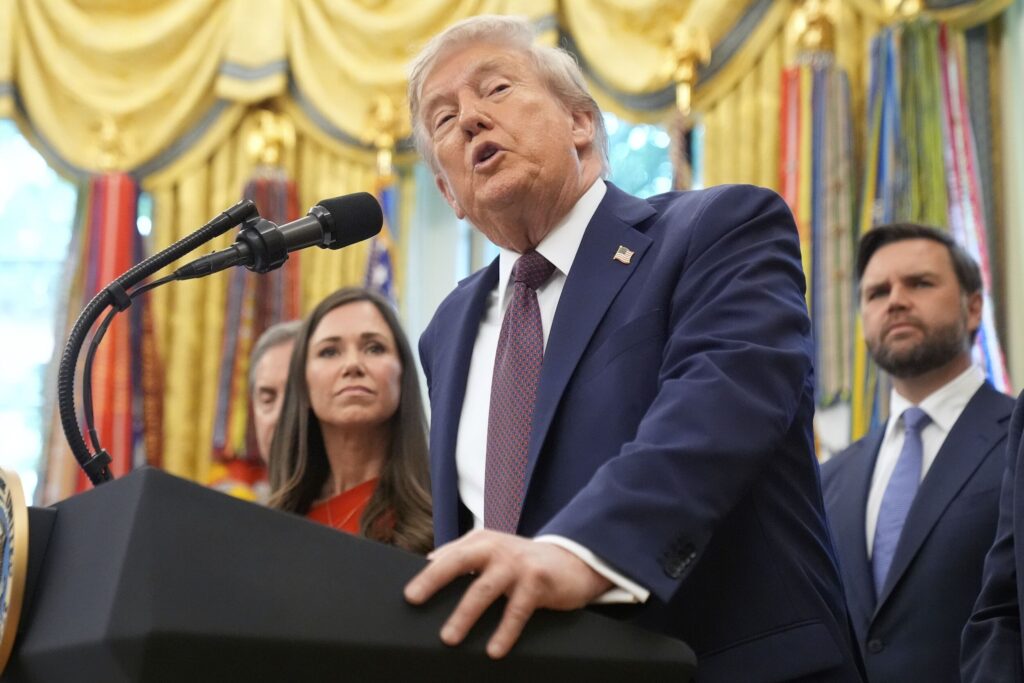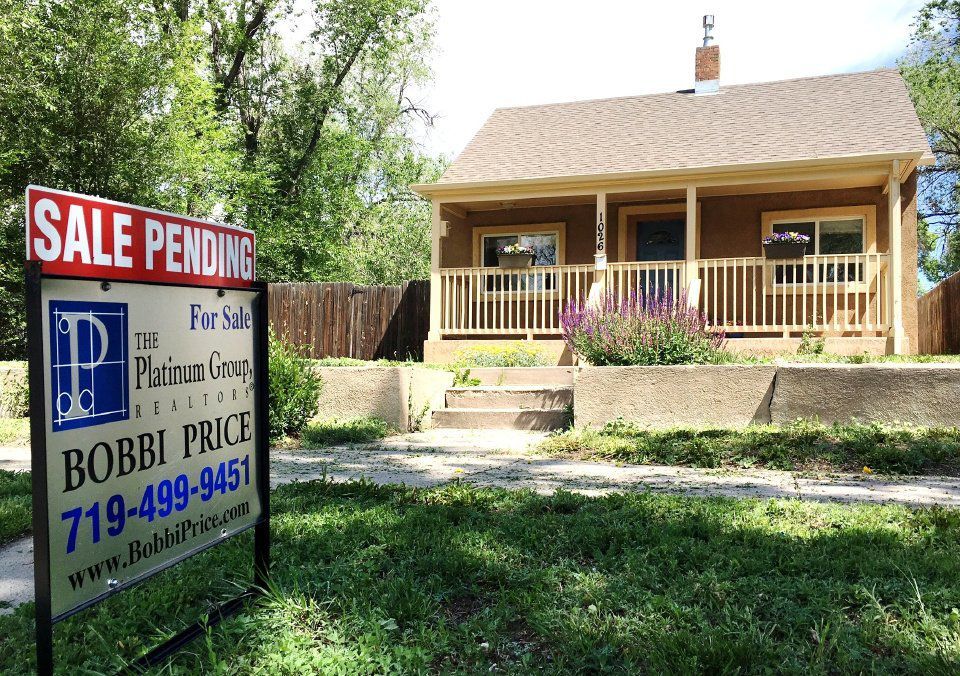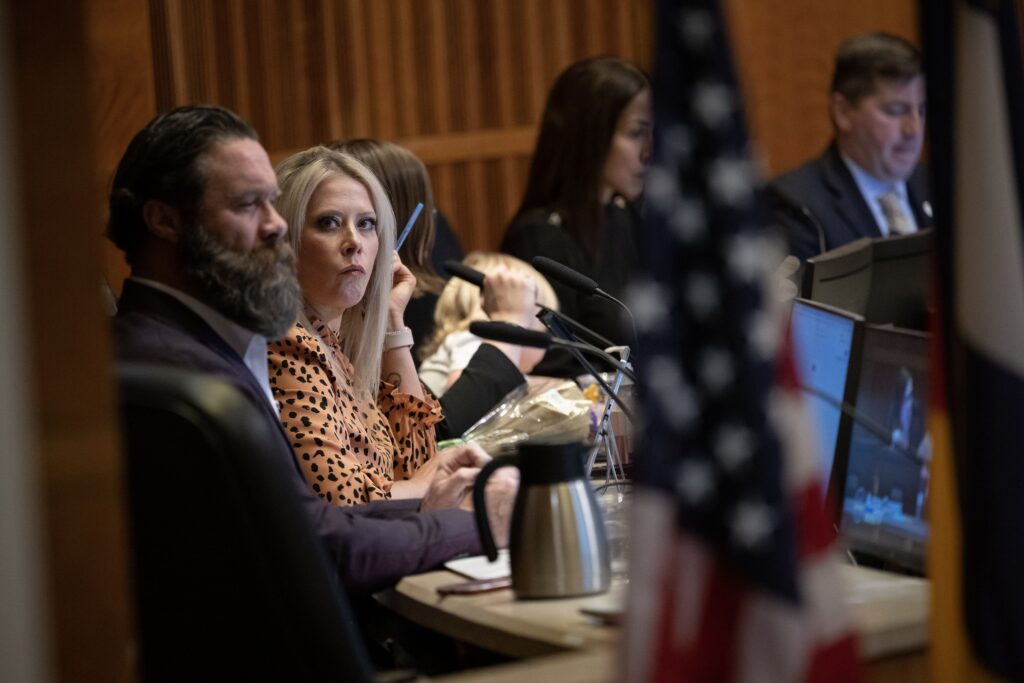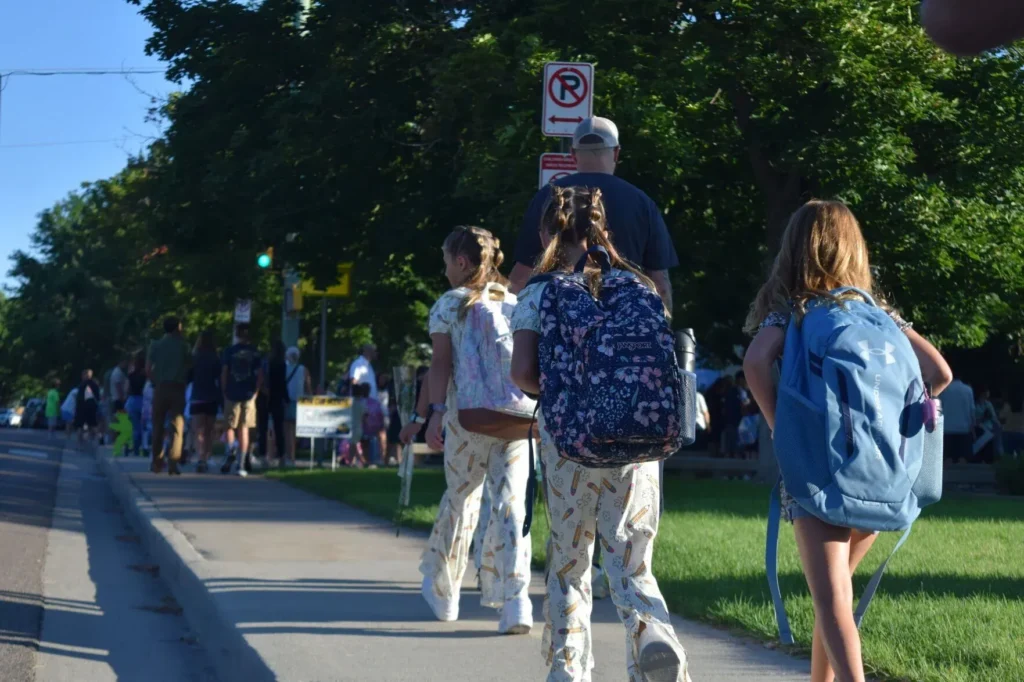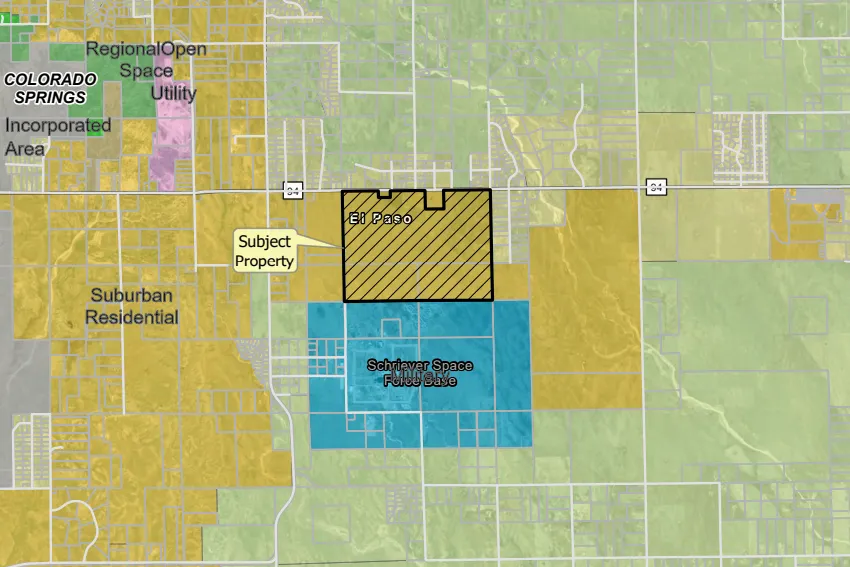5 areas in Downtown Denver targeted for major catalyzation
At the recently reopened Denver Central Library on Wednesday, a map of downtown laid out across the carpet floor like a city street map for kids.
Visitors picked up Lego-like bricks and tossed them into five Ball mason jars sitting on the map.
The glass containers were set over Upper Downtown, Skyline Park, Arapahoe Square, Ballpark and the Cherry Creek corridor — areas where local leaders are looking at as the places where most of the city core’s struggles overlap.
The display was for a public open house giving a first glimpse into the formation of the next Downtown Area Plan, the city’s guiding-star document for influencing policies and priorities over the next 20 years within the city core.
The plan being developed by the Downtown Denver Partnership, city leaders and consulting firm Sasaki comes at a time when downtowns across the country are struggling with the post-pandemic landscape. About a third of Denver’s office real estate is sitting on the market and 16th Street Mall’s construction has hindered businesses and traffic.
One of the main struggles that consultants for the Downtown Area Plan have identified is a lack of housing options and residential amenities, such as grocery stores or childcare.
Downtown Denver’s recovery lags other cities, study says
They also concluded that major roads surrounding downtown — such as Colfax Avenue, Speer Boulevards, Broadway and the South Platte River — are a major barrier of access into downtown for pedestrians and bicyclists. Another problem lies with the transit system, where bike lanes and light rail don’t reach the densest residential pockets in and around downtown.
Places like Upper Downtown have a high concentration of empty offices, and a lack of housing and of public parks. The other hotspots — Arapahoe Square by Broadway and the Cherry Creek corridor along Speer Boulevard — are where the street grid systems intersect and impede mobility.
After spending the first few months meeting with stakeholders and getting thousands of public responses, consultants located the five areas within downtown to prioritize and solve several common problems found across the city center.
As envisioned, the five areas marked by the mason jars showed where changes to downtown could have the most impact.
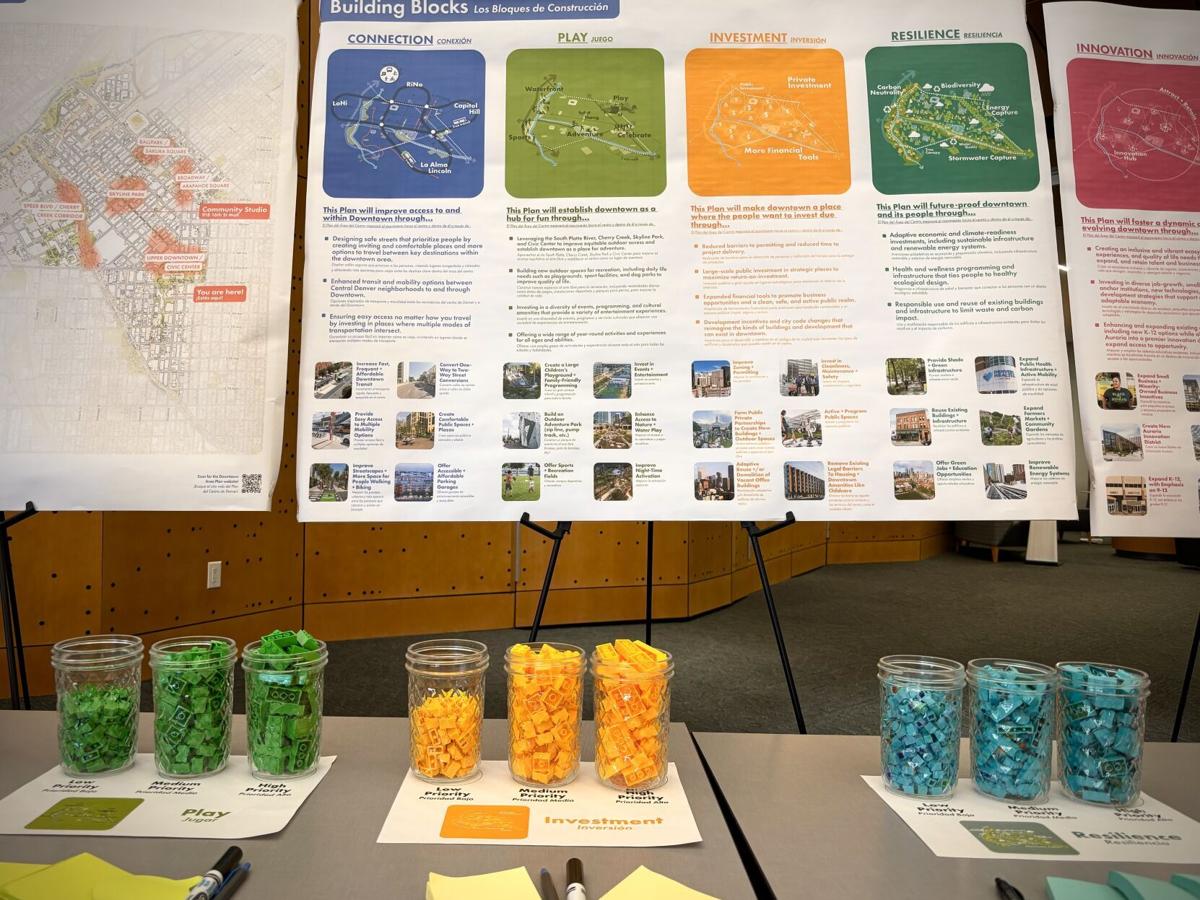
Lego bricks representing different priorities that Denver leaders are looking at for improvement in downtown at a public open house on Wednesday, Dec. 4, 2024.
Bernadette Berdychowski / The Denver Gazette

Lego bricks representing different priorities that Denver leaders are looking at for improvement in downtown at a public open house on Wednesday, Dec. 4, 2024.
The open house allowed guests to pick up different-sized Lego bricks — from small, medium to large — to vote and measure the importance of several key solutions for prioritization, such as reducing barriers for investment, increasing connections, having more sustainable infrastructure and making downtown more attractive for businesses.
“Each one of those building blocks really helps us think strategically about the types of projects, infrastructure or development projects, policies and other things that will ultimately go into the detailed recommendations of the master plan,” said Joshua Brooks, Denver principal and landscape architect at Sasaki.
The Downtown Area Plan will cover investments to be across all of downtown, but the five areas will be among the top of priorities.
Brooks added that the parts of downtown that are faring better, such as Lower Downtown, typically have the widest variety of amenities, transit and housing that make it a more desirable sub-neighborhood to live or open an office in.
“What we’re really thinking about is the kind of collective ecosystem that needs to be created in downtown,” Brooks said.
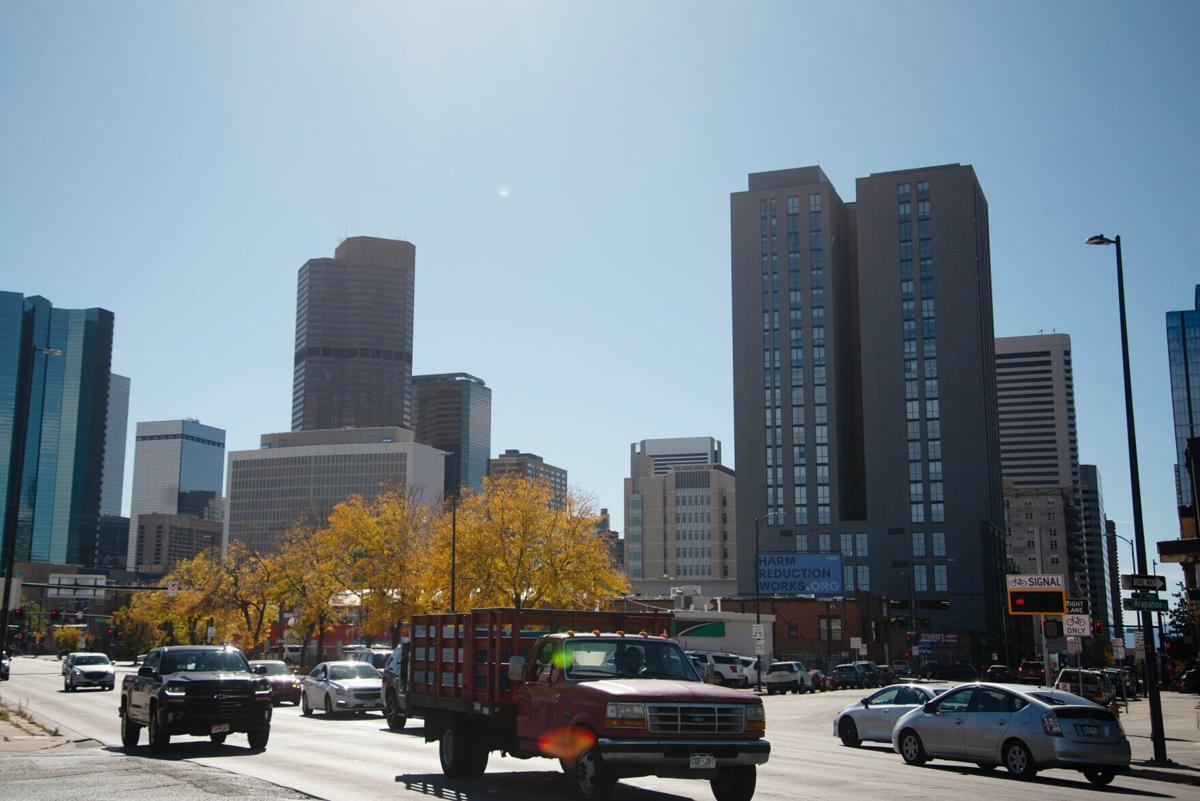
Vehicles pass through downtown Denver, Colo. on Thursday, Oct. 31, 2024.
Tom Hellauer/Denver Gazette

Vehicles pass through downtown Denver, Colo. on Thursday, Oct. 31, 2024.
Councilmember Chris Hinds, who represents the district covering most of the city core, said Denver has many planning documents that guide the city’s future but often fall short because of a lack of money to implement the vision.
But this edition of the downtown plan is coming along with a massive infusion of capital, Hinds said.
“This is an opportunity for us to have a planning process where your input has actual funding. City funding. Taxpayer funding,” he told a crowd of several dozen people.
Eligible voters around Union Station recently voted to expand Denver’s Downtown Development Authority, a tax-increment financing tool using the tax revenues generated over time from new developments, to cover the area for the rest of downtown.
It’s expected to infuse $570 million over the next decade beginning next year, whether it’s for the city to fund its own projects or to close the gap needed by private developments.
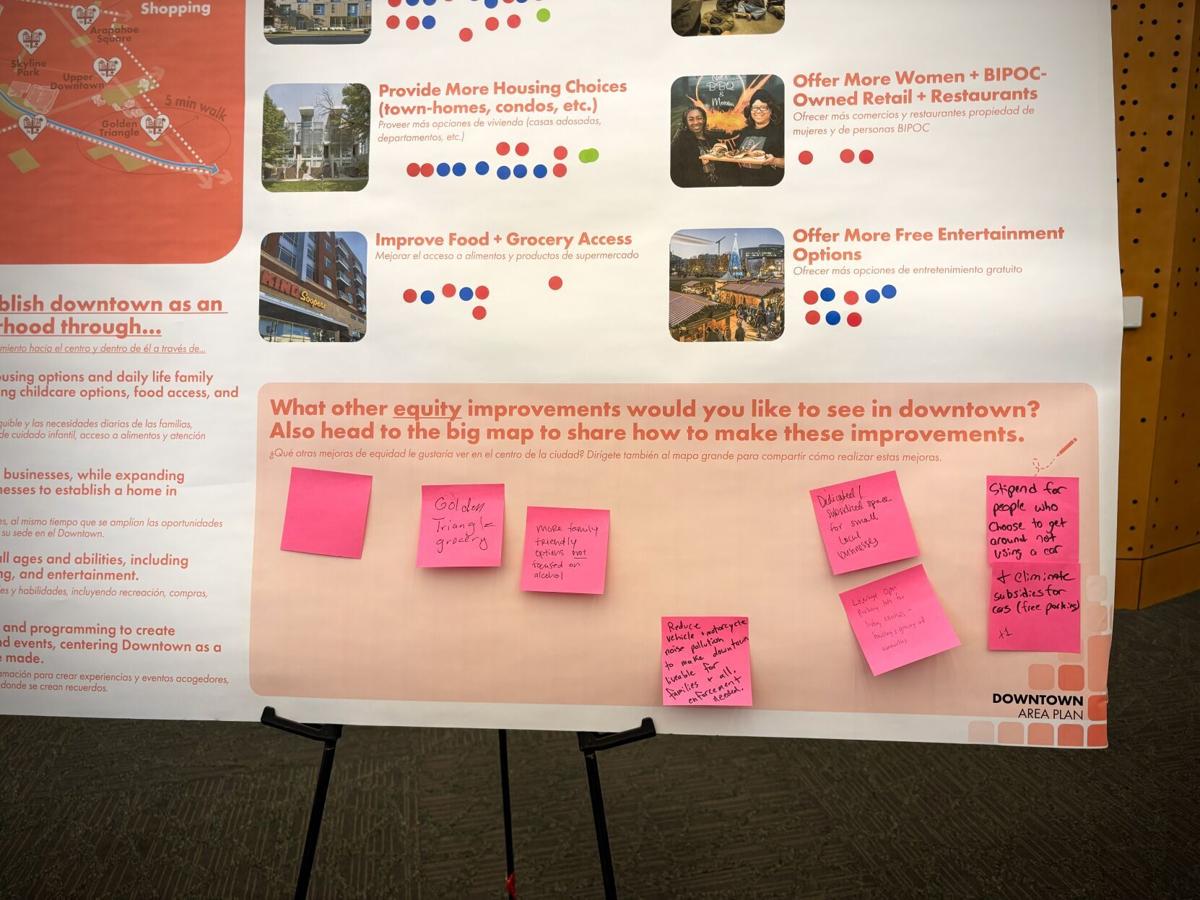
Guests leave Post-it notes for ideas to improve equity across downtown Denver at a public open house on Wednesday, Dec. 4, 2024.
Bernadette Berdychowski / The Denver Gazette

Guests leave Post-it notes for ideas to improve equity across downtown Denver at a public open house on Wednesday, Dec. 4, 2024.
The Downtown Area Plan is expected to release the first public draft in April or May. Sasaki, the consulting firm, is currently working to gauge whether the issues and target locations are on track with the public. In January 2025, the consultants and city leaders will begin crafting “Big Swing” strategies to address the issues presented on Wednesday.
The team is collecting feedback on the current direction of the through a survey lasting until Dec. 24 at denverdowntownareaplan.com.
In addition to the five areas, the Downtown Area Plan is also honing in on the residential neighborhoods surrounding downtown, such as the River North, Capital Hill, La Alma Lincoln Park and the Lower Highlands.
Because of the “car-centric” boulevards and avenues surrounding downtown, Brooks said many of those neighborhoods are blocked off and don’t have the same transit infrastructure to support frequent use.
5 things to know about massive Ball Arena project extending downtown Denver
“When you think about Denver’s public transportation system, it’s largely a hub and spoke strategy, where it services a large commuter population from the suburbs and the broader metropolitan area,” he said.
Part of the Downtown Area Plan will also “rethink” transit options for those neighborhoods.
It’ll be “to ensure that the people that actually commute to downtown most frequently have the best access to public transportation,” Brooks said.


